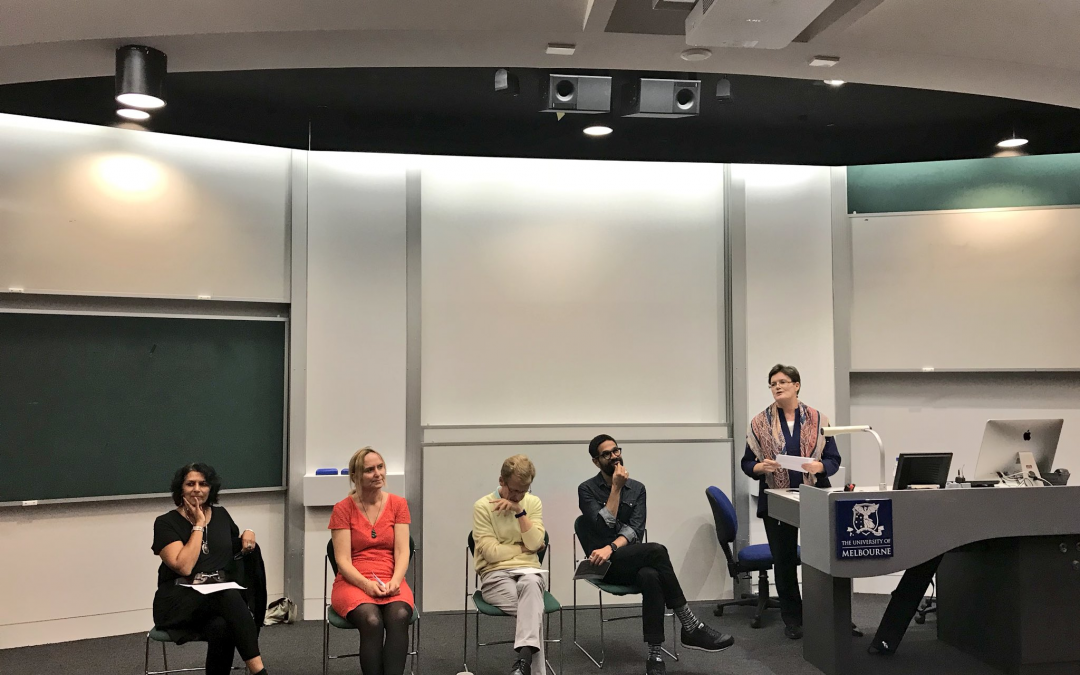Phuong Nguyen, Master of Development Studies, President of the Graduate Organisation of Development Students (GOODS) at the University of Melbourne, Australia
Are global inequalities growing or diminishing? With the rise of new global powers, are the dimensions of inequalities shifting across borders, becoming more complex than ever? As a development practitioner and a critical social scientist, have you yourself done anything that – even with good intentions – reinforced structural inequalities in society?
Over the three days of the New Geographies of Global Inequalities and Social Justice Conference at the University of Melbourne, I had the chance to engage with academics, activists and practitioners from around the world, whose brilliant ideas and scholarship have enlightened me in my quest to answer some of these questions. For me three themes emerged from the papers presented.
1. The construction and deconstruction of the idea of inequality
The conference opened with a plenary session reflecting on forms and drivers of global inequalities. Academics from Australia (Professor Tony Bebbington), New Zealand (Professor Regina Shryvens) and the UK (Professor Luis Eslava and Professor Uma Kothari), discussed how current models of economic growth, capital accumulation and development policies as well as often neglected colonial legacies continue to produce, maintain and deepen injustices. Following this first session I had the opportunity to explore these ideas further through the main panels.
Professor David Hulme, co-author of Just Give Money to the Poor (2010) opened the first panel on the second day of the conference with an analysis of inequality in relation to global politics. He highlighted the emergence of a focus on equality as part of the UN Sustainable Development Goals (SDGs) in 2015, the shift of power to emerging BRICS countries and the resulting shift in development discourse. This was later complemented by a discussion from Professor Ghassan Hage on distributional versus extractive inequality and the intricate entanglement of the two.
Meanwhile, AProf Anne Brown addressed the construction of inequalities taking an epistemological approach. She proposed four elements involved in the creation of inequalities: political order, personal attributes, economic relations and discourse and knowledge. In deconstructing the notion of inequality, AProf Sarah Wright offered a critical self-reflection in a pluriverse, as opposed to a universal, approach and emphasised the role of academic institutions in the creating knowledge that shapes the discourse. These conceptual frameworks helped me understand the production of global inequalities
2. Knowledge creation and discourse – the language and counter-narrative in understanding inequality
Many of the panel presentations reminded me about the implication of global inequalities on the creation of knowledge and dominant discourse. The multiple dimensions of inequalities were raised in the conference panels and these included:
- Aboriginal communities and the contemporary colonialist assimilation policies in Australia regarding land rights, government support and social inclusion (through the presentations of Jon Altman, Nikki Moodie, Elise Klein and Libby Porter);
- issues of environment and climate justice raised by Monica Minnegal who spoke about the ontological conflict over environmental constructions and renewals and John Cox on the moral economy of natural disasters;
- gender inequality was raised in Rebecca Monson’s presentation on the Solomon Islands;
- Internal divisions were explored through uneven capital flows in the new policies of the Papua New Guinean government in liquefied natural gas (LNG) industry, presented by Kessy Sawang, Lisa Palmer’s paper on the ambivalence of “Indigeneities” in Timor Leste and an empirical study on government-caused discrimination in provision of public services to different slums in India, presented by Mahvish Shami;
- the ‘racialised hierarchies’ and reinforced inequalities towards, but also resistance by, refugees and migrants was addressed by Uma Kothari on the humanitarian response to the 2015 refugee crisis, by Kalissa Alexeyeff on transnational movement across Oceania and Karen Farquharson on #AfricanGang.
3. Hope
Throughout the presentations on current inequalities – be they extreme, hidden or unintentionally created – there was always a silver lining. This was evident in a number of papers: Regina Shryvens demonstrated how the SDGs act as a guide towards more a more inclusive tourism industry, Samantha Balaton-Chrimes showed how solidarity won in a political struggle to decolonise the North-South relationship in India and Susanne Schech examined the new and more humanitarian approach to immigration regulations in South Australia. analysis.
Hope was also apparent when panelists explained how markets and institutions can be utilised to change systems that currently reinforce injustice (e.g papers by Jon Barnett, Vanessa Lamb and John Langmore) and as people from the south seek their own autonomy and create their own agency (through papers by Masami Tsujita Levi, Paul Hodge, Sharon McLennan, Dolly Kikon and Suzi Hutchings). It is their creativity, agency and resistance that is sustaining the hope to move towards a “future beyond global inequalities”, to the title of the closing plenary.
Reflections
Having the chance to observe the amazing work being carried out by talented development scholars and practitioners from around the was an eye-opening experience for me to reflect on the current situations of this multi-dimensional, multi-faceted and institutionalised concept. However, it was also evident that through activism and academia inequalities are gradually being addressed and are challenging the status quo. For example, it amazed me when I read the news this morning that the Aboriginal artists A.B.Original, introduced to me through the final presentation of the conference by Dr. Suzi Hutchings, were the first hip hop artists to win an APRA Music Award for Songwriter of the Year with Reclaim Australia, an album dedicated to denouncing the negativity towards the Indigenous communities. It is an opportunity, and concurrently a challenge, for development practitioners, academics and activists to work in solidarity, while acknowledging, and even letting go of, their own privileges in order to make a real difference in the fight against global inequalities.
Find out more about our Master’s programmes


